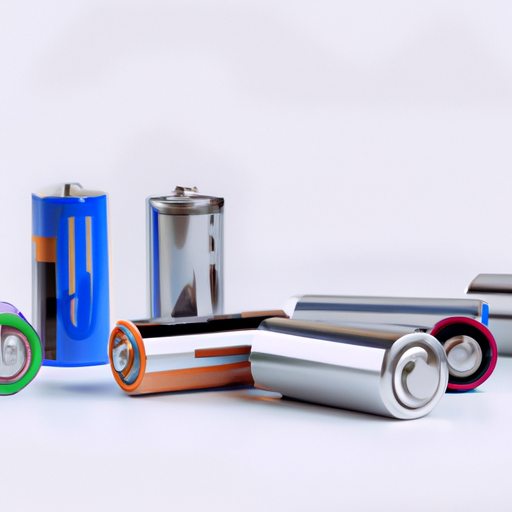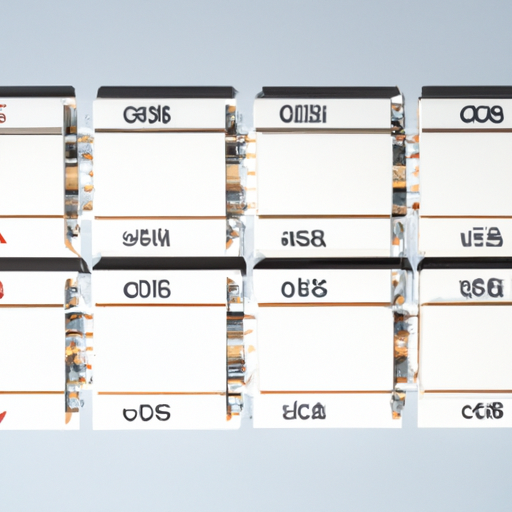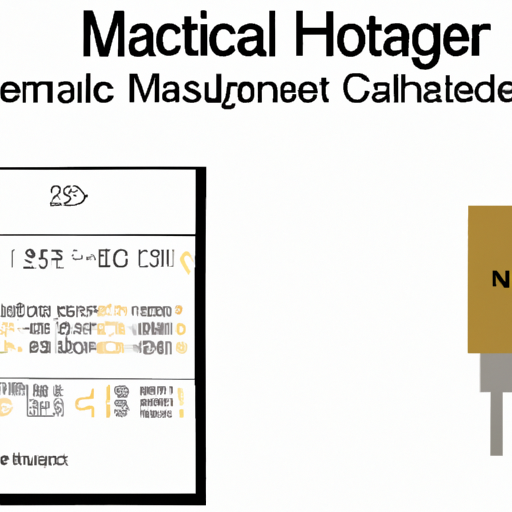What are the advantages of energy storage capacitor products?
What are the Advantages of Energy Storage Capacitor Products?
I. Introduction
In an era where energy efficiency and sustainability are paramount, energy storage technologies play a crucial role in modern applications. Among these technologies, energy storage capacitors stand out due to their unique characteristics and advantages. This blog post will explore the benefits of energy storage capacitors, their operational principles, and their applications across various industries. By the end, readers will gain a comprehensive understanding of why energy storage capacitors are becoming increasingly vital in our energy landscape.
II. Understanding Energy Storage Capacitors
A. Explanation of How Capacitors Work
At its core, a capacitor is an electronic component that stores electrical energy in an electric field. The basic principle of capacitance involves the ability of a capacitor to hold charge, which is determined by its physical characteristics, such as surface area, distance between plates, and the dielectric material used.
There are several types of capacitors used for energy storage, including electrolytic capacitors, ceramic capacitors, and supercapacitors. Each type has its own unique properties, making them suitable for different applications.
B. Comparison with Other Energy Storage Technologies
When discussing energy storage, it is essential to compare capacitors with other technologies such as batteries, supercapacitors, and flywheels.
Batteries store energy chemically and typically have higher energy density, making them suitable for long-term energy storage. However, they often have slower charge and discharge rates and shorter cycle lives.
Supercapacitors bridge the gap between traditional capacitors and batteries, offering higher energy density than capacitors but lower than batteries. They excel in rapid charge and discharge applications.
Flywheels store energy mechanically and are known for their high power output and long cycle life, but they are more complex and expensive than capacitors.
III. Key Advantages of Energy Storage Capacitor Products
A. High Power Density
One of the most significant advantages of energy storage capacitors is their high power density. Power density refers to the amount of power a device can deliver per unit of weight or volume. Capacitors can release energy much faster than batteries, making them ideal for applications that require quick bursts of energy, such as in electric vehicles (EVs) during acceleration or in power backup systems.
B. Rapid Charge and Discharge Rates
Energy storage capacitors can charge and discharge energy almost instantaneously. This rapid energy transfer mechanism is crucial in applications where quick response times are essential. For instance, in industrial settings, capacitors can provide immediate power support during peak demand periods, helping to stabilize the grid and prevent outages.
C. Long Cycle Life
Energy storage capacitors have a significantly longer cycle life compared to batteries. While batteries may only last a few hundred to a few thousand cycles, capacitors can endure hundreds of thousands of charge and discharge cycles without significant degradation. This longevity translates to lower maintenance and replacement costs, making them a cost-effective solution in the long run.
D. Wide Operating Temperature Range
Capacitors can operate effectively across a wide range of temperatures, from extreme cold to high heat. This characteristic makes them suitable for applications in harsh environments, such as aerospace, automotive, and industrial settings, where temperature fluctuations can impact performance.
E. Low Self-Discharge Rate
Another advantage of energy storage capacitors is their low self-discharge rate. Unlike batteries, which can lose charge over time even when not in use, capacitors retain their energy for extended periods. This feature is particularly beneficial in applications where energy retention is critical, such as in backup power systems and portable electronics.
F. Environmental Benefits
Energy storage capacitors offer several environmental benefits. They typically do not rely on hazardous materials, making them a safer choice compared to some battery technologies. Additionally, many capacitors can be recycled, contributing to sustainability efforts and reducing electronic waste.
IV. Applications of Energy Storage Capacitor Products
A. Renewable Energy Integration
Energy storage capacitors play a vital role in integrating renewable energy sources like solar and wind into the power grid. They help smooth out fluctuations in energy supply, ensuring a stable and reliable energy flow. By storing excess energy generated during peak production times and releasing it during low production periods, capacitors enhance the efficiency of renewable energy systems.
B. Electric Vehicles (EVs)
In the automotive industry, energy storage capacitors are increasingly used in electric vehicles, particularly in regenerative braking systems. When an EV brakes, the kinetic energy is converted back into electrical energy and stored in capacitors, which can then be used to power the vehicle during acceleration. This process enhances the overall efficiency and performance of EVs.
C. Power Quality Improvement
Capacitors are essential for improving power quality in industrial settings. They provide voltage stabilization and reactive power support, helping to maintain the integrity of the electrical supply. This capability is crucial for sensitive equipment that requires stable voltage levels to operate effectively.
D. Consumer Electronics
In the realm of consumer electronics, energy storage capacitors enhance the performance of portable devices such as smartphones and laptops. They provide quick bursts of energy for high-demand applications, such as camera flashes or gaming, ensuring a seamless user experience.
V. Challenges and Considerations
A. Limitations of Energy Storage Capacitors
Despite their numerous advantages, energy storage capacitors do have limitations. One of the primary drawbacks is their lower energy density compared to batteries. While they excel in power delivery, they cannot store as much energy per unit volume, which can be a disadvantage in applications requiring long-term energy storage.
Additionally, cost considerations can be a barrier to widespread adoption. While prices are decreasing, high-performance capacitors can still be more expensive than traditional battery systems.
B. Future Trends and Innovations
The future of energy storage capacitors looks promising, with ongoing research and development aimed at enhancing their performance. Innovations in materials and design are expected to improve energy density and reduce costs. Furthermore, the potential for hybrid systems that combine capacitors and batteries could lead to more efficient energy storage solutions, leveraging the strengths of both technologies.
VI. Conclusion
In summary, energy storage capacitors offer a range of advantages that make them an essential component of modern energy systems. Their high power density, rapid charge and discharge rates, long cycle life, and environmental benefits position them as a viable alternative to traditional energy storage technologies. As the demand for efficient and sustainable energy solutions continues to grow, energy storage capacitors will play a pivotal role in shaping the future of energy storage. Continued innovation in this field will further enhance their capabilities, ensuring they remain at the forefront of energy technology.
VII. References
1. "Energy Storage Technologies: A Review," Journal of Energy Storage, 2022.
2. "The Role of Capacitors in Renewable Energy Systems," Renewable Energy Journal, 2023.
3. "Advancements in Supercapacitor Technology," Journal of Power Sources, 2023.
4. "Electric Vehicles and Energy Storage: A Comprehensive Overview," Automotive Engineering Review, 2023.
5. "Environmental Impact of Energy Storage Technologies," Environmental Science & Technology, 2023.
For further reading on energy storage technologies, consider exploring industry reports and academic articles that delve deeper into the advancements and applications of energy storage capacitors.







